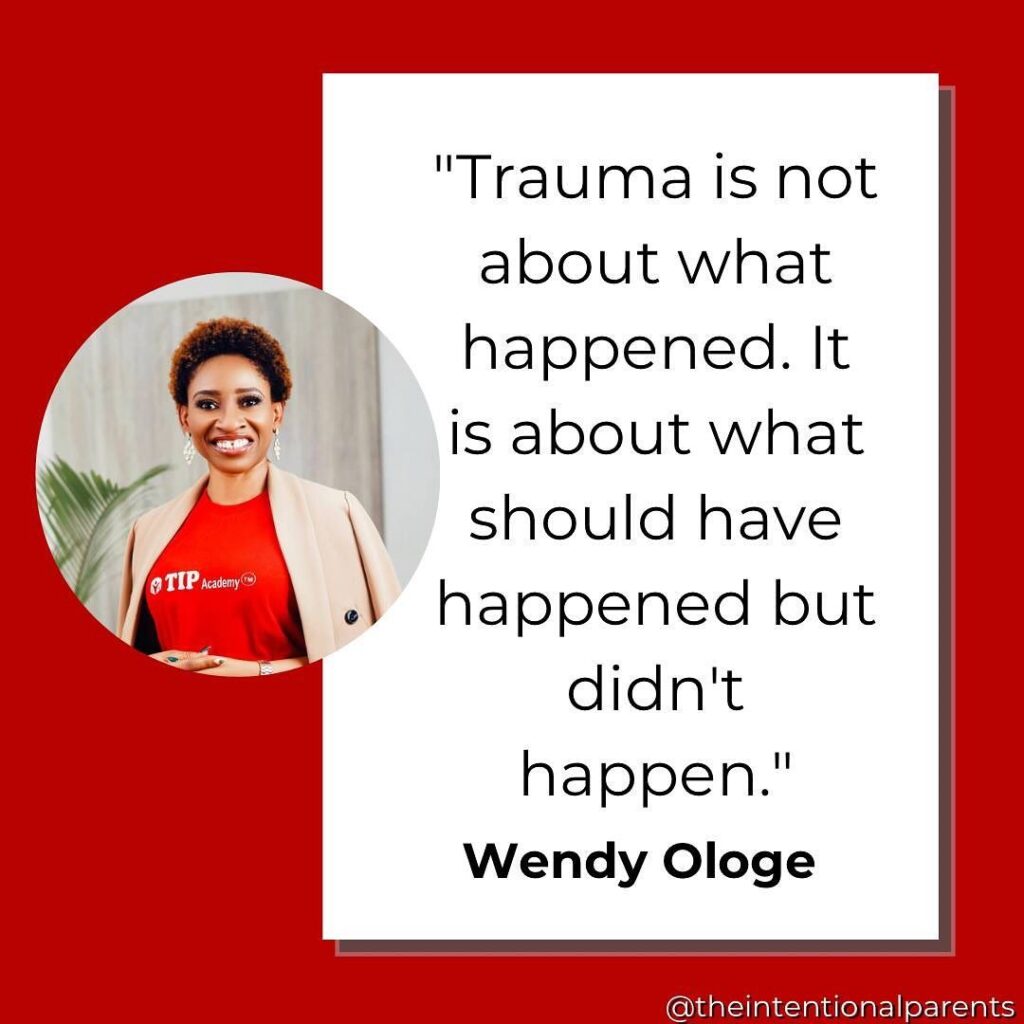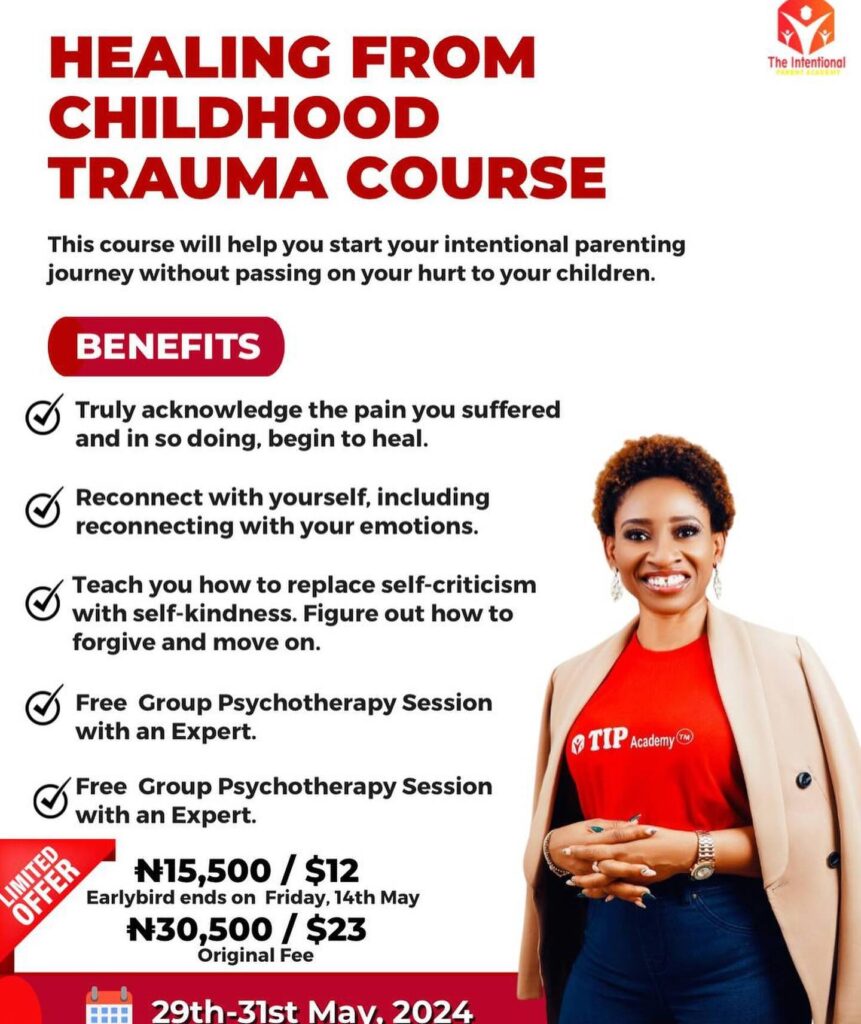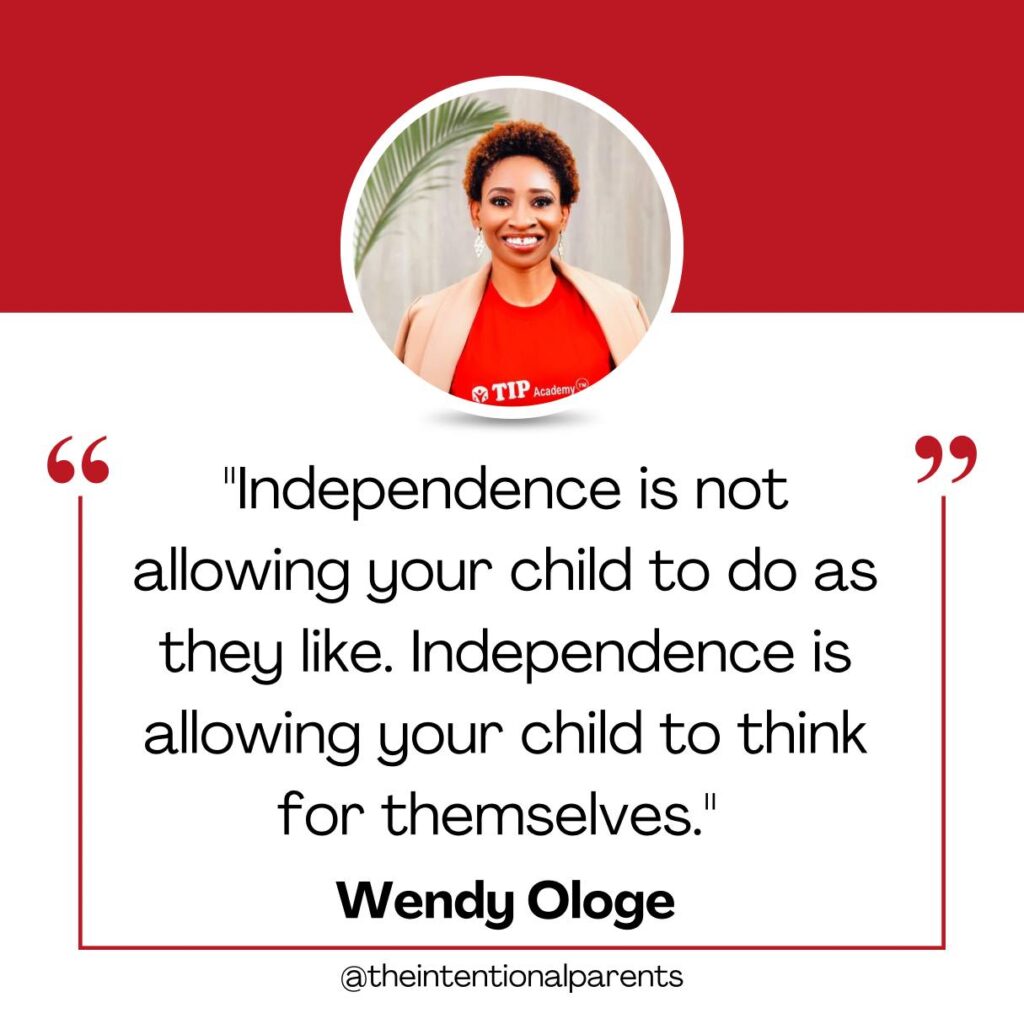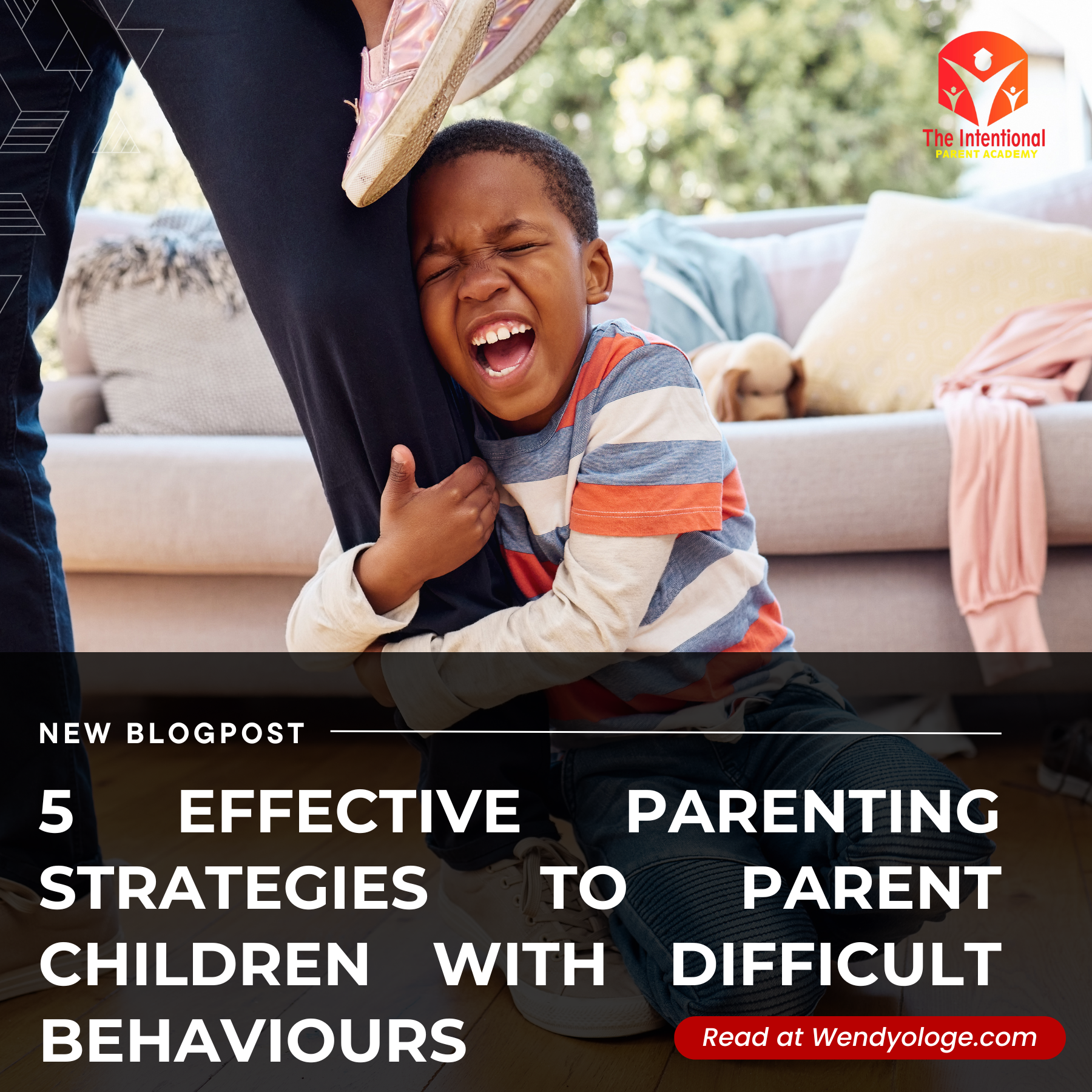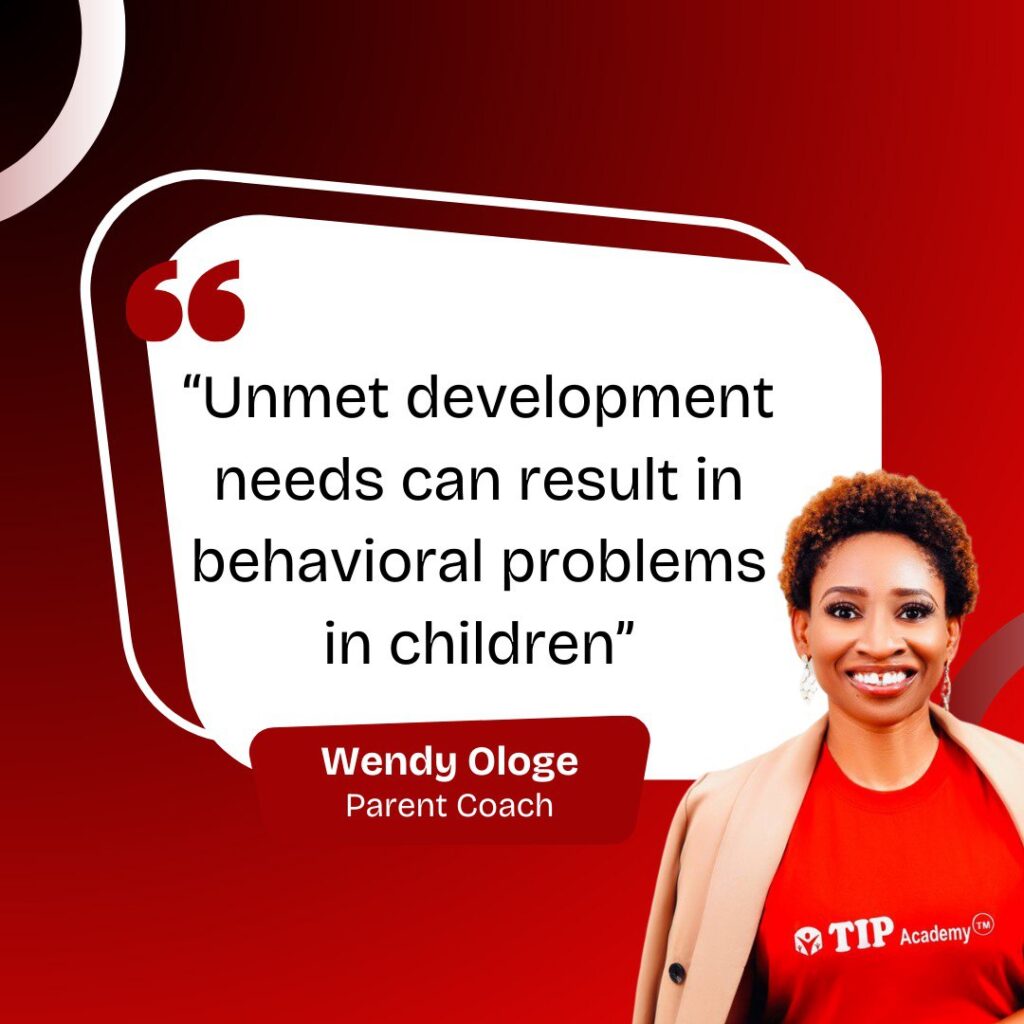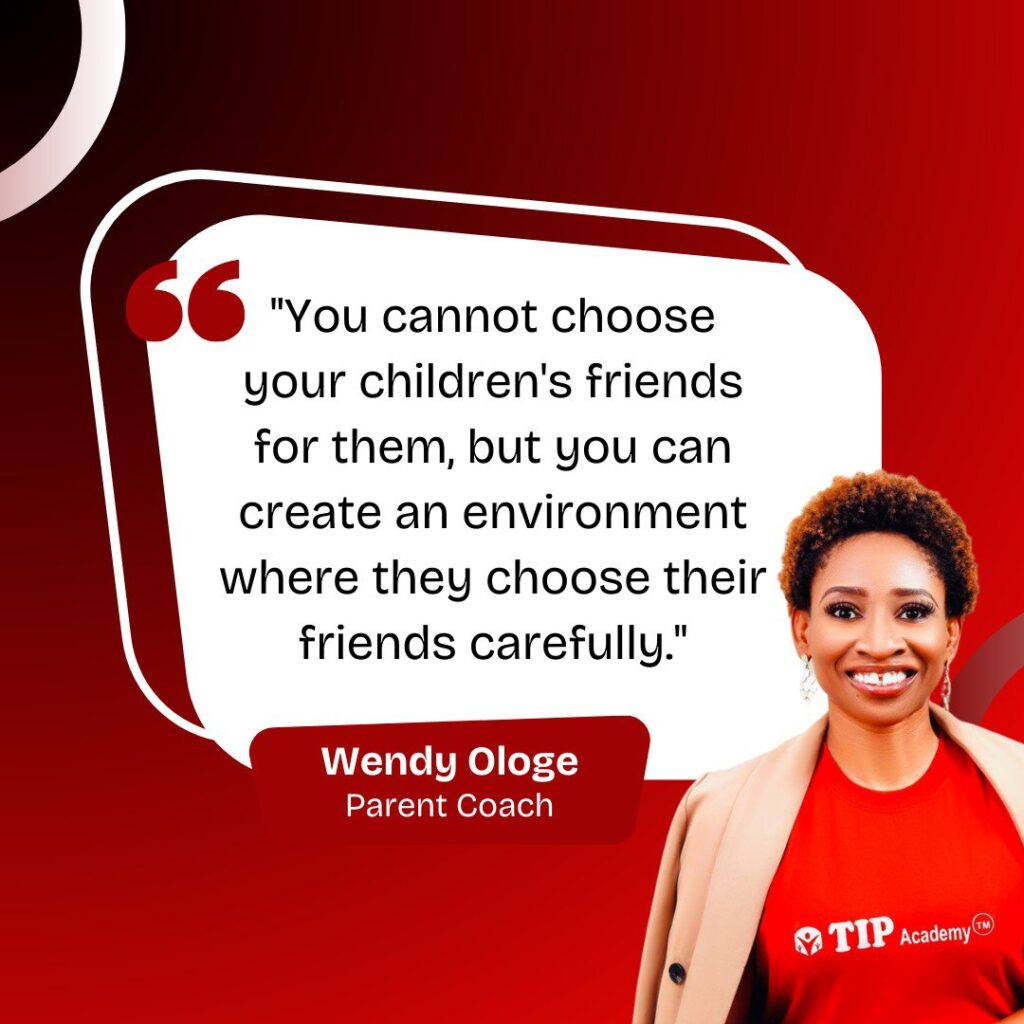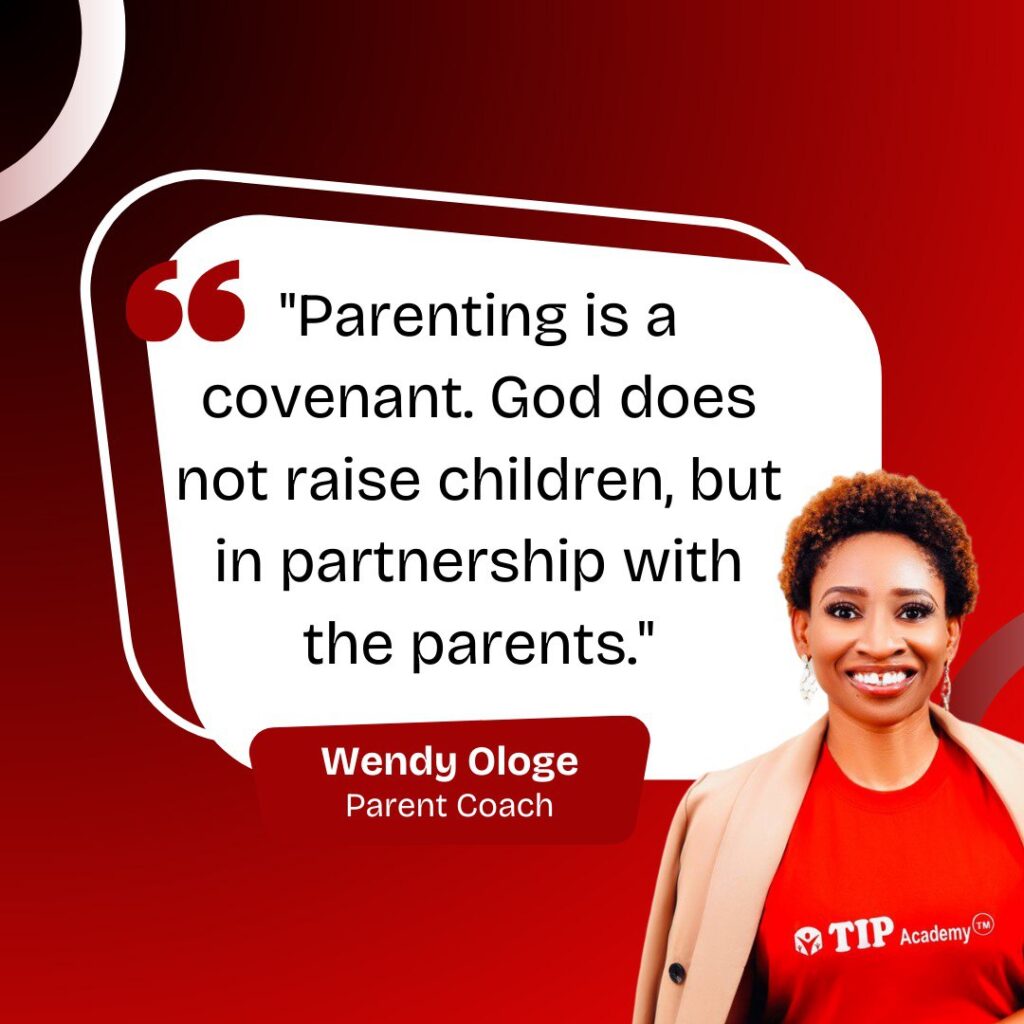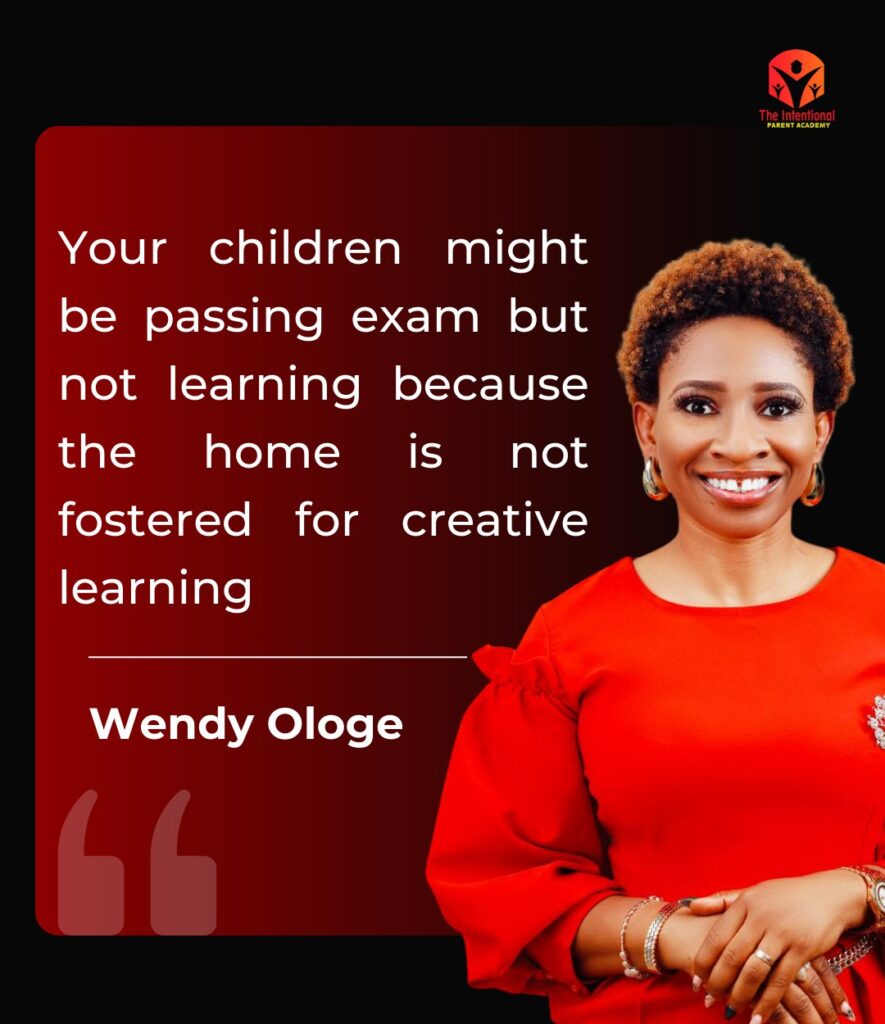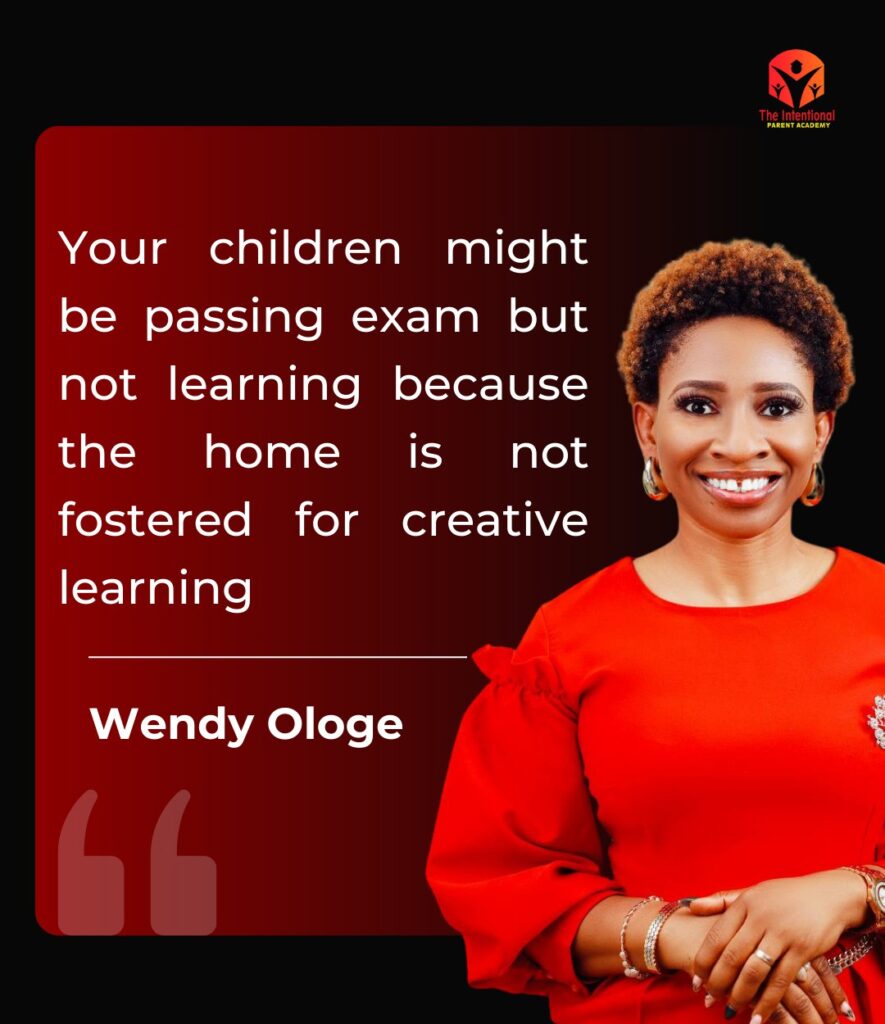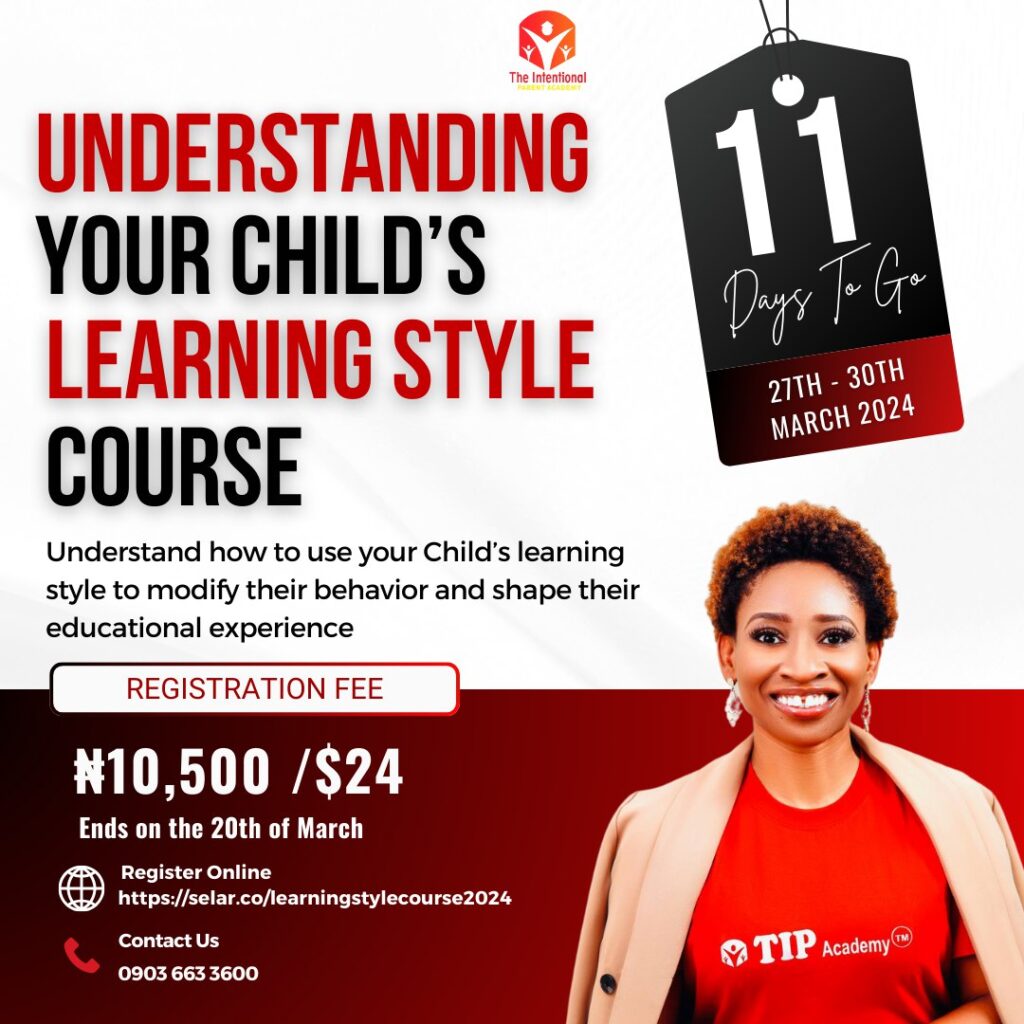Our upbringing plays a crucial role in shaping who we become as parents. You are a product of who raised you, how you were raised, where you were raised, and what the person who raised you knew. In essence, if someone else had raised you, you would have been a different person.
One of the key points to note about raising anybody is that you are formed by what you see. The things you believe are a result of your programming, even if those beliefs are not based on principles. Parenting is programming. Thus, what your children become will be a result of the programming you give them.
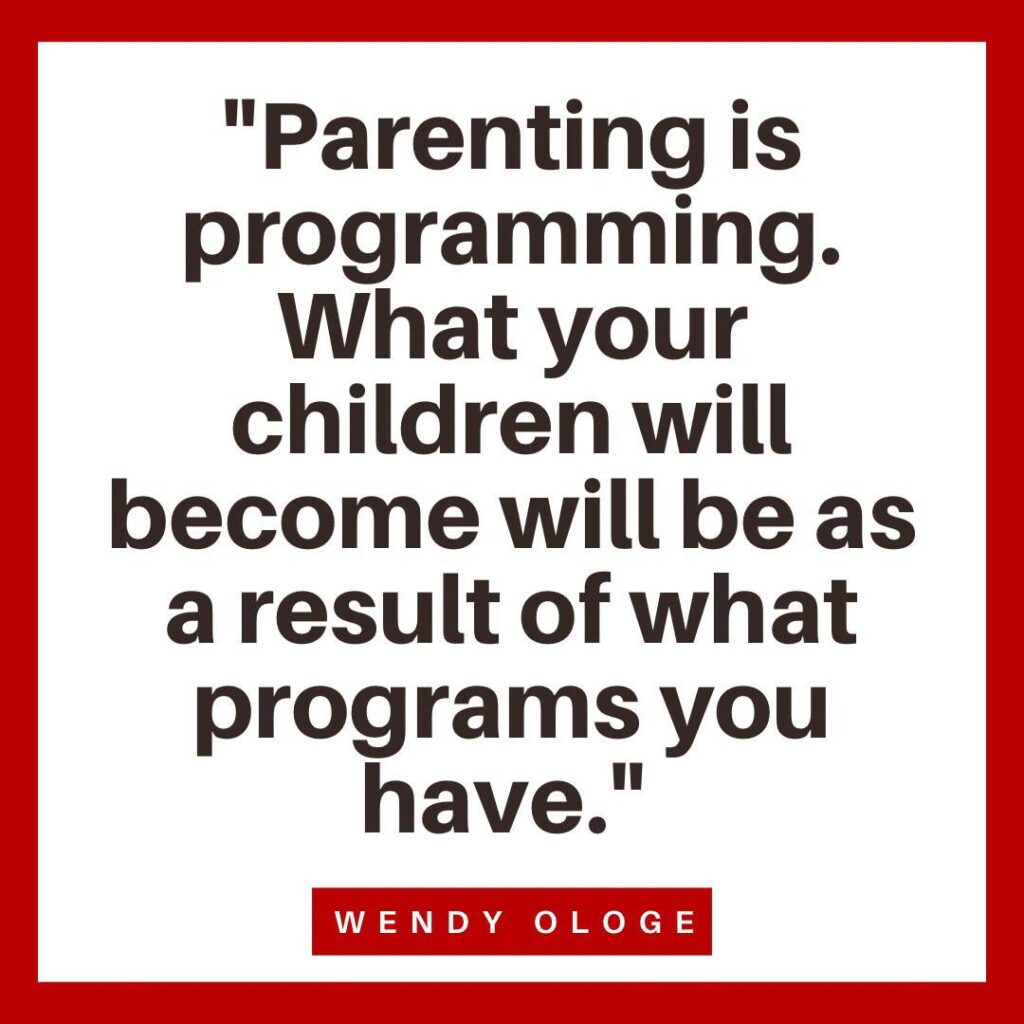
Here are several ways your upbringing affects your parenting today:
Values and Beliefs:
The values instilled in you during childhood, whether good or bad—such as honesty, lying, and empathy—become the foundation of your parenting philosophy. These can be categorized into two stages: inherited values and belief systems.
Many people say African or Nigerian parents are very disciplined because every misstep by a child receives a “brain-resetting” slap, and so we call that discipline. Unfortunately, that is not discipline. We often define violence as discipline because that is what we have been socialized and programmed to believe. One inherited value is the misinterpretation of discipline, which has become part of us and part of what we are fighting to change today. Discipline is not violence. However, because we have inherited violence as a value, we continue it. As adults, many cannot finish one book a year due to a lack of discipline; they are overweight because they haven’t disciplined their appetite, yet they think they are disciplined because they punish a child for every misbehavior. Can you see the difference? Inherited values can mess up our journey and make it difficult to explain to a typical African person that using a cane is not discipline. Some say children raised abroad are spoiled, while children raised in Nigeria are disciplined. The truth is, parenting gaps exist everywhere. The principles of parenting are the same globally. If you fail here, you’ll fail there if you don’t follow the principles.
When it comes to belief systems, one common belief is about education. Many believe education is the way out. It’s true, but the question is, what is your definition of education? Often, education is just attention, awareness, and advocacy. Beyond these, we didn’t learn how to learn. Education alone won’t take you to the place of creativity. Learning how to learn is key. There is so much awareness but no creativity that brings actual results. Education is good, but it’s not the end. Without diving into transformation, accountability, and progress, we will remain stuck. Education is just the beginning.
Our belief system about work is another area. Many believe you go to school, get a job, and get paid. This system was created to build a middle class. If you don’t understand that we are now in a skills economy, you might misguide your children based on outdated beliefs. Training the head, heart, and hands of the child is crucial for their future survival. Our belief systems can either make or break our children. Relationship beliefs also matter. A mother might tell her daughter, “You’re here for your children. When the man misbehaves, just look away.” The belief that a woman’s money is her own, while the man’s money is for the family, persists today. We need to rethink our belief systems and how they affect raising our children. Life is shaped by upbringing and guided by the principles we pass on to our children. If we don’t unlearn and relearn, we will pass on outdated principles that don’t serve our children’s needs. It’s culturally unintelligent to compare our times to our children’s times. The principles you pass on will be determined by what you know.

Parenting Style:
Parenting style is influenced by two main factors: modeled behavior and discipline techniques.
Modeled behavior includes how your parents disciplined you, communicated, and showed affection. This influences your parenting style, whether you consciously follow their example or choose a different path. Many of us experienced a lack of tangible expressions of love. A significant number of adults have never heard their parents say “I love you.” We knew our parents loved us because they paid our school fees and provided food, but we didn’t experience pure love. This affects our relationships, even with God. We worship God with conditions because we never truly experienced unconditional love. Parents often use expressions of love as a punishment tool. If you’re not in touch with this reality, this trauma will affect future generations.
The second category is discipline techniques. How you were disciplined influences how you discipline your children, for better or worse.
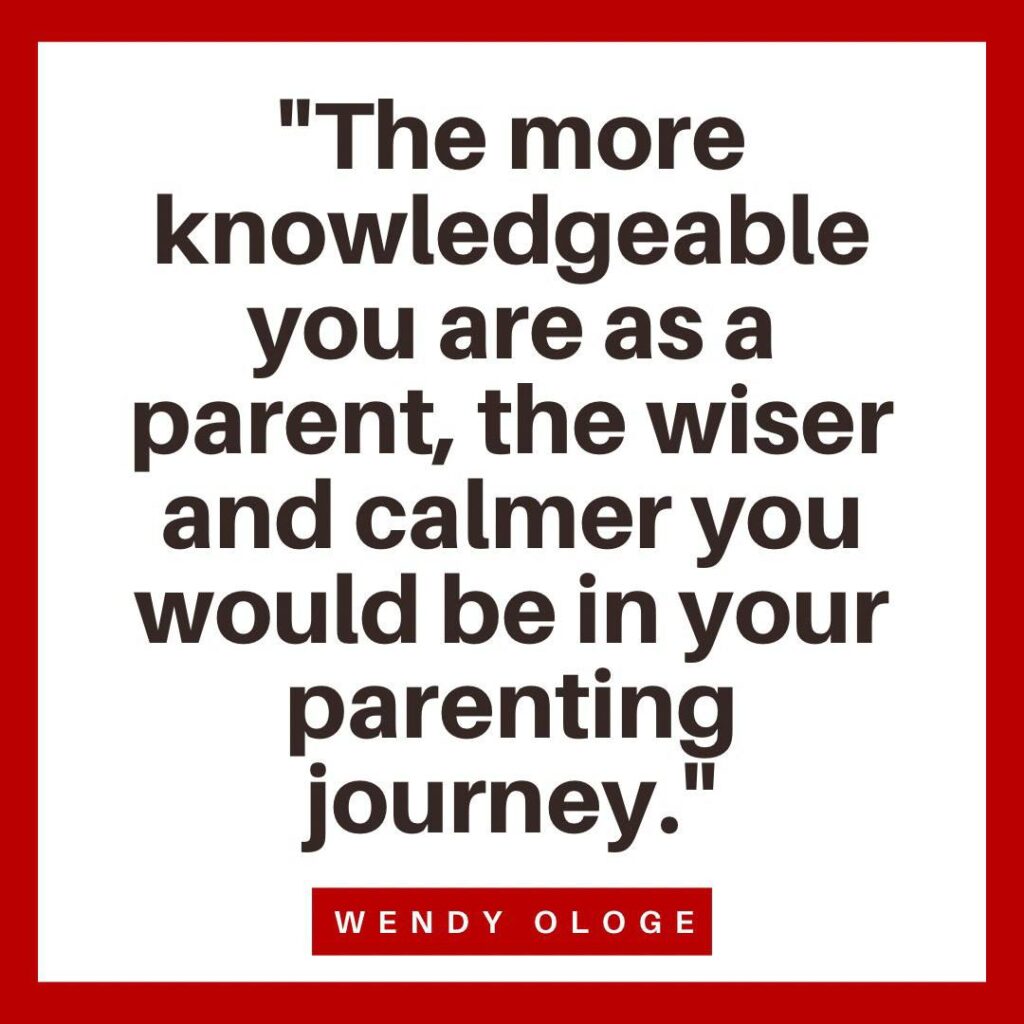
Emotional Responses:
Emotional regulation and conflict resolution are critical here.
Emotional regulation involves how we learned to manage and express emotions as children. This affects how we handle our children’s emotions and outbursts. Children learn emotions from home, and struggles arise when the household members haven’t learned to regulate their emotions.
Conflict resolution is another important aspect. Many of us were taught confrontation, not conversation, leading to confrontational approaches instead of resolving conflicts through dialogue. This is worse in cases of sibling rivalry. The problem isn’t conflict itself but how to resolve it. Many were taught to stonewall during conflict instead of resolving it. Stonewalling is not a conflict resolution skill.
Communication Patterns:
If your family practiced open communication, you’ll likely practice open communication with your children. Listening skills are key in communication. Were you listened to as a child?
Parental Involvement:
The level of involvement your parents had in your life influences how involved you are with your children. Parents who had uninvolved parents might over-parent or under-parent their children. These are trauma responses. For instance, parents who lacked resources as children might give their children excess, even when it’s not beneficial, leading to issues like obesity. Trauma can distort your perspective.
Reflection and Adaptation
Recognizing the impact of your upbringing on your parenting is empowering. It allows you to reflect on what aspects to continue and what to discard. If you’re not changing anything about your parenting, there’s something wrong with your knowledge base. It means you haven’t recognized that some past practices are no longer viable today.
Self-reflection is crucial. Reflect on your childhood experiences and how they affect your parenting style. Identify beneficial patterns and those that aren’t. Reflection helps you understand a lot.
Education, Learning, and Creativity:
Equip yourself with knowledge about different parenting techniques and self-development. This can provide new perspectives and tools to enhance your parenting skills. You’re doing what you’re doing because you don’t know any other way. If you’re parenting in today’s world without a system that helps you learn in detail, you’re missing out. That’s why we run the Inner Circle in the academy. You need new perspectives to do better than the previous generation.
Mindful Parenting:
Become intentional in your parenting. Be present and attentive, making conscious choices about how to respond to your children’s needs and behaviors. Make these choices from a place of knowledge. Without new perspectives, you won’t be able to make conscious choices. Seek support when struggling. This is what parents enjoy in the Inner Circle.
Be Adaptable:
Be willing to adapt and change your parenting strategy as you learn and grow. You must be flexible to meet your child’s evolving needs.
The Inner Circle of the Intentional Parents Academy is a learning system you need to commit to. Start by enrolling in courses to fill the gap in your knowledge bank. If you don’t address your upbringing, you’ll never parent better. The past isn’t just in the past; it affects your present.

There is definitely such a thing as transgenerational trauma. If your mom or dad had a traumatic childhood and that trauma was also unresolved, it is passed down from parent to child, from unconscious mind to unconscious mind. Children are vulnerable. You picked it up. You were affected, too. Parents that were traumatized live out their trauma. They often can’t be fully there for you or become identified with the abuser who abused them. Or, in instances where your mom or dad survived a horrific event, such as the Holocaust, war, the terror and unbearable losses can live like ghosts haunting both them and you. All these various sources of trauma and their effects live on if they are unresolved and all can affect you long into your adulthood — in their many ways and many forms.
At our healing session starting 29th-31st May my self Wendy Ologe with two other amazing professionals Ben Preye Baldwin and Coach Tayo Iyortim will be walking over 500 registered participants through a journey of healing. Don’t numb your feelings thinking that time will heal it all, Time never heals anything, it’s what we do with the time that makes all the difference. You have only 5 days to go!
Don’t miss out on this chance to gain essential tools and support on your journey to recovery! To register for the Healing from Trauma Course, Simply Click Here :https://theintentionalparentacademy.selar.co/healingcourse
Or pay #15,500 to 0509494057 (GTB). The Intentional Parent Academy.
Send proof to +234 903 663 3600. Remember that you will get two guides FREE the Confidence Guide and the Bedwetting Guide FREE just by registering at this course. See you at the top! I am rooting for you. Be Intentional






